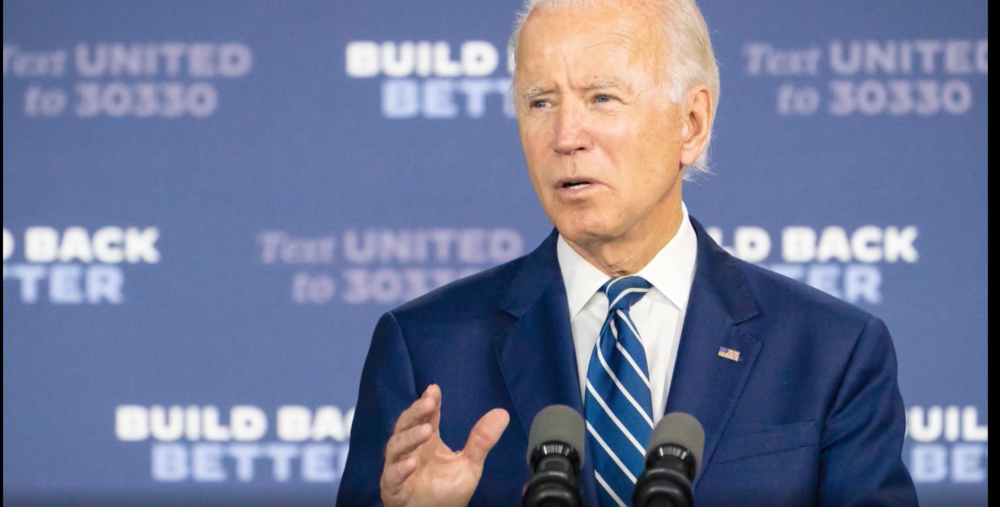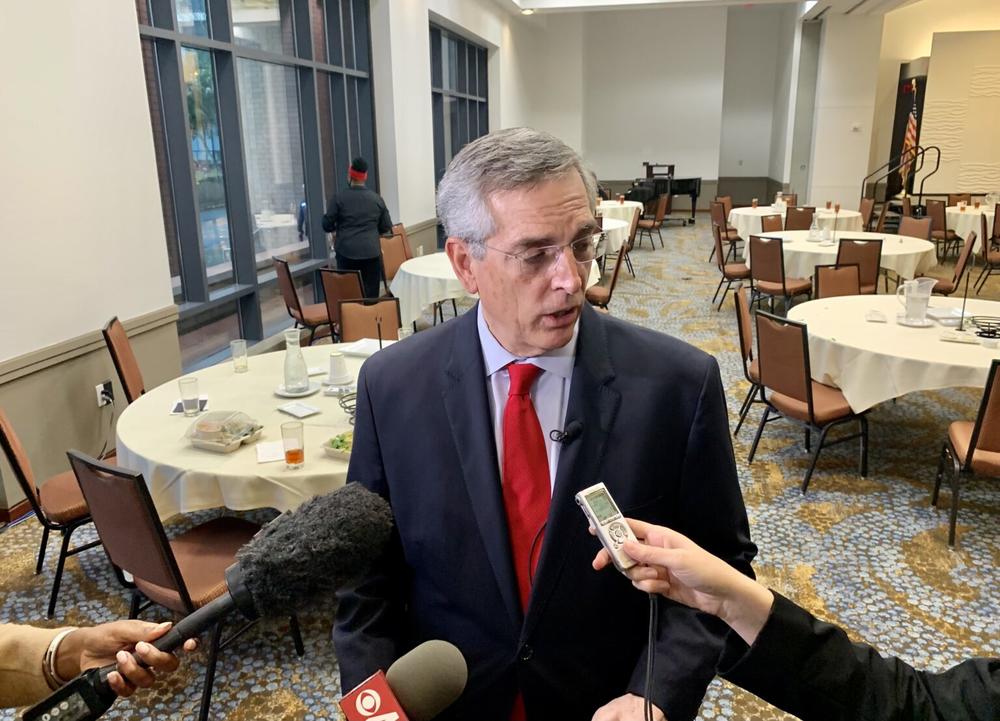
Caption
University of Georgia political science professor Charles Bullock says that a move up the presidential primary calendar in 2024 for Georgia might benefit Republican candidates if Democratic President Joe Biden runs for reelection in 2024.

University of Georgia political science professor Charles Bullock says that a move up the presidential primary calendar in 2024 for Georgia might benefit Republican candidates if Democratic President Joe Biden runs for reelection in 2024.
Georgia Gov. Zell Miller in 1992 shrewdly used some of his power to maneuver the state towards the front of the pack of the presidential primary in order to boost the candidacy of his friend and fellow Southerner Arkansas Gov. Bill Clinton.
The influence Georgia had on politics would diminish over the next two decades as the former Democratic stronghold evolved into reliable Republican territory. Meanwhile, Miller’s own support for a future two-term president waned. By the beginning of the 21st century, many of Georgia’s elected officials supported Republican policies. GOP candidates went on to dominate statewide elections for two decades.
In 2020, Georgia regained the nation’s attention as a battleground state, albeit partly because of unfounded conspiracy theories about stolen elections, fueled by former President Donald Trump and his allies. When Democratic candidate Joe Biden won the state’s 16 presidential electoral votes and Raphael Warnock and Jon Ossoff won runoffs over incumbent opponents for the U.S. Senate, Georgia’s transformation from blue to red to purple state continued.
Now, Georgia is a near lock to play an important role in determining who will be selected as the next president of the country in 2024.
As a nod to Georgia’s growing influence in the country’s political landscape, the national Democratic Party and Georgia’s Republican Secretary of State are endorsing the state moving up the presidential primary calendar — just not on the same timetable.
A plan approved by the Democratic National Committee this month calls for Georgia to join the early presidential primary calendar on Feb. 13, 2024, just two weeks before South Carolina would hold its primaries.
The Georgia Democratic Party has until June to demonstrate that it is capable of adhering to the party’s timeline.
Meanwhile, as first reported by the Associated Press, Secretary of State Brad Raffensperger endorsed Georgia moving up on the 2028 presidential primary calendar, a nod to Georgia’s increasing influence in the national political landscape.

At a Jan. 24, Rotary Club of Atlanta meeting, Secretary of State Brad Raffensperger defended the integrity of Georgia’s elections and his refusal to overturn 2020 election results.
“It has a good cross-section of engaged voters from both parties, and, as everyone seems to now recognize, we run great elections,” Raffensperger said.
Georgia held its 2022 midterm elections primary May 24. The state’s 2020 presidential primary was delayed until June 9 after the first months of the COVID-19 pandemic scrambled plans to hold the elections earlier.
Early primary states Iowa, South Carolina, and New Hampshire have long grabbed the spotlight as election season unfolded, with the results of those elections and caucuses not only determining early favorites but also causing some candidates to drop out of the field.
University of Georgia political science professor Charles Bullock, said that if Georgia moved up into the first several weeks of party primaries when voters pick their favored candidates to run for president, it could be a coup for the Peach State.
“This means our voters will have a bigger impact on who becomes a future president,” Bullock said. “If Georgia adopts this plan, we will have a full range of candidates because we know that very early on some candidates begin to drop off.”
The Republican National Committee did not respond to an email from the Georgia Recorder regarding the state’s role in the primary election
Bullock said that if Georgia is moved up earlier by the 2024 primary, it could benefit Republican candidates who have strong support in the state rather than Biden seeking his second term.
Georgia’s advantage as a battleground in the next couple of election cycles would boost the economy as more political ads, campaign visits, and other resources are poured into the state. The accelerated timeline would also benefit Georgia candidates regardless of their political affiliation, Bullock said.
“If there is a Georgia candidate like a (Sen.) Raphael Warnock or a Brian Kemp or somebody else who was running for the president that particular year, it would be very beneficial for them to be able to have a big send off here in Georgia if Georgia was, say, in the third week of the sweepstakes,” Bullock said.
Raffensperger’s position highlights the Democrats’ challenge in reordering their nominating calendar to elevate racially diverse electorates and de-emphasize Iowa and New Hampshire. Those predominantly white states have opened the nominating process for both major parties for decades and still lead Republicans’ 2024 calendar as it’s currently set — with national GOP officials showing little interest in reconsidering their slate.
The question is whether Democrats can find momentum among the Republicans who control the Georgia statehouse and with the national GOP forces necessary to make such a change.
The state’s growing swing state prominence could get a boost even if the primary calendar remains unchanged. Atlanta Mayor Andre Dickens expresses growing optimism that the capital city will host the Democratic National Convention for the party’s 2024 presidential nomination.
The difference in where Georgia falls on the primary calendar requires both parties to agree to any changes, while a single party committee decides which city its convention will take place.
This story comes to GPB through a reporting partnership with Georgia Recorder.